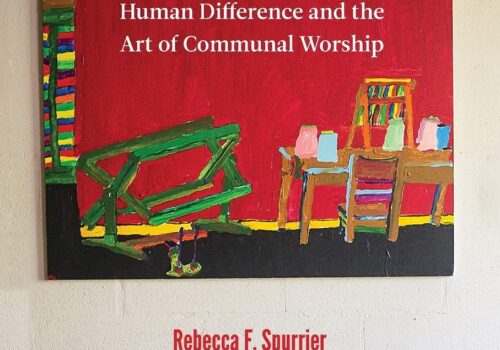Download PDF: RV Park Partner to the Poor
Edited by Paul Farmer and Haun Saussy.
Berkeley: University of California Press, 2010. 660 pages. $60.00 (hardcover) / $18.15 (paperback).
Partner to the Poor: A Paul Farmer Reader is the most recent in a growing collection of books by and about Farmer. This edited volume captures his experiences as a physician, medical anthropologist, and academician advocating for human rights and healthcare across the globe. Farmer is co-founder of Partners In Health (PIH), a non-profit organization focused on “providing a preferential option for the poor in health care” (www.pih.org). Through the organization, Farmer has traveled to countries such as Haiti, Peru, Russia, and Rwanda in an effort to provide health care to those needing it most, particularly individuals with HIV or tuberculosis. Having demonstrated the efficacy of his efforts to improve the health of socially marginalized populations, Farmer continues this work as a professor of Social Medicine at Harvard University. His encounters with patients, coupled with his in-depth analyses of the social factors contributing to their illnesses, fill his academic writings that comprise this new book.
As a medical anthropologist, Farmer conducted extensive ethnographic research to gain a deep understanding of and appreciation for the individuals he encountered. Though he has conducted important research in other parts of the world, much of his ethnographic work focuses on his time in Haiti. His rich descriptions of the experiences, conversations, and observations provide the reader with unique insight into how the local environment and cultural norms in Haiti intersect with a person’s concept of health. For example, Farmer describes a seamless connection between an individual’s illness and their religious beliefs. Many individuals described by Farmer mention the idea that their disease has been “sent” by someone out of contempt. As a result, these individuals seek assistance from voodoo priests to help cure their illnesses through herbal remedies. Only as a last resort do they seek care from a medical facility.
The juxtaposition of religious beliefs and scientific explanation illustrates and points to the chasm between Third World and First World societies. The tensions between the two ways of thinking are depicted in Farmer’s discourse on the beginnings of the HIV epidemic in the United States and Haiti. As HIV began to spread in the U.S., medical researchers and popular media outlets described a correlation between HIV and people of Haitian descent, implicating Haiti as the source of the disease’s spread in the U.S. In particular, the voodoo practices of Haitians—including animal sacrifices, drinking animal blood, and using human blood in sacrifices—became sticking points for depicting Haitians as the source of HIV. Where one culture turns to their religious beliefs for understanding and healing of their illnesses, another culture uses the same beliefs to insinuate a source of disease.
This particular collection of Farmer’s academic essays spans over twenty years and critically examines the health of individuals made vulnerable by the social forces around them. Through his ethnographic research, Farmer is able to gain a deeply personal understanding of individuals living with HIV in Haiti. He describes their unique experiences of coping with disease while living in poverty. Many of these individuals are unable to seek any medical attention, let alone treatment for HIV, due to financial hardships. Others are unable to go to the medical clinic due to the sheer distance that requires a day’s time to travel at the expense of earning wages. Many women living in rural Haiti seek better employment opportunities in larger cities to help support their families. However, they all too often find prostitution to be the most reliable means of earning an income, exposing themselves to HIV and other sexually transmitted diseases. Paul Farmer powerfully captures the true reality of living with HIV in Haiti.
Farmer’s poignant examples of individuals suffering from untreated HIV demonstrate how societal factors such as poverty, unemployment, sexism, politics, violence, and war play pivotal roles in the progression and spread of such diseases. Farmer uses the phrase “structural violence” to describe
“sinful” social structures characterized by poverty and steep grades of social inequality, including racism and gender inequality. Structural violence is violence exerted systematically—that is, indirectly—by everyone who belongs to a certain social order. … In short, the concept of structural violence is intended to inform the study of the social machinery of oppression (354).
As Farmer expands his work to other countries, he clearly demonstrates how structural violence is relevant to individuals living in Peru, South Africa, Rwanda, and even the United States. All of these individuals share a common struggle to receive needed medical care but are hindered by the structural violence in place. Hence, Farmer states that epidemics of infectious diseases are a social phenomenon rather than a purely biologic process.
Haun Saussy collects Farmer’s writings and orders them into a compelling narrative about the social injustices affecting the health of vulnerable populations. Farmer’s critical analysis of oppression and his vision for access to health care as a human right challenge readers to think beyond the myopic view of individualism. Rather, he urges readers to consider the greater issues of society as direct determinants of health. According to Farmer, access to health care is a right entitled to all, regardless of race, income, or gender: “Excellence [in medical care] without equity looms as the chief human rights dilemma of health care in the twenty-first century” (269). Health care is not meant to be a commodity left for some to desire. Rather, we, as a society, should advocate for equal human rights for all individuals in order to address some of the root causes of preventable diseases. Farmer’s call to provide health care to those needing it most brings an energized yet pragmatic passion to an enduring problem in global health.
His training as a physician and as an anthropologist meld two disciplines to provide a comprehensive understanding of the global HIV and tuberculosis epidemics. Because Farmer’s academic writings can be a challenge to comprehend, this book will appeal to select readers interested in understanding global health issues. Despite the scholarly nature of his writing, Farmer’s message that everyone must be provided access to health care is never obscured.




